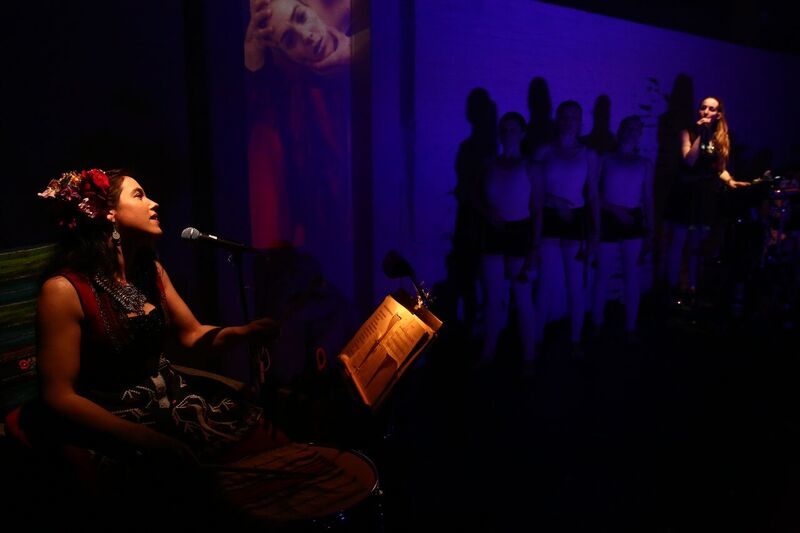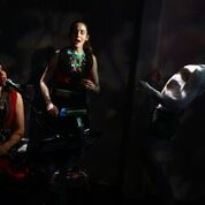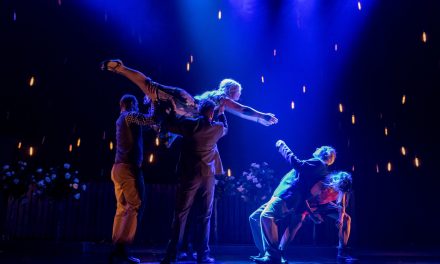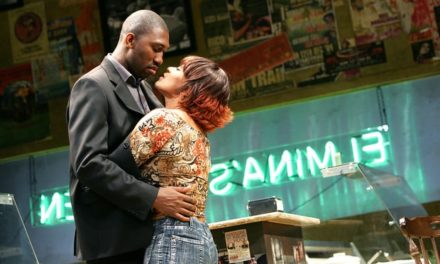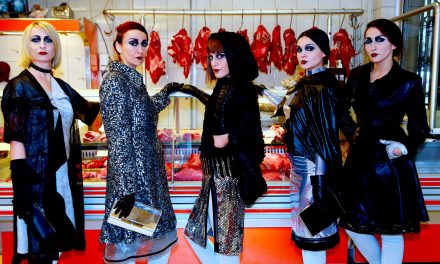PROTOTYPE captures the opera lover’s attention again this year, with offerings that include Mata Hari, Anatomy Theater, and Rev. 23, a Work-in-Progress Concert.
Produced by The Delirium Constructions, Secondary Dominance stands out as a perfect synthesis of opera and media. Combining tribal and post-modern influences, Sarah Small holds court and doesn’t lose heart. The creator, composer, and writer of this Multi-Media Concert is a petit- powerhouse, incorporating folk and art rock. A RISD alum, her consciousness includes photography and sculpture. A Grammy nominated artist, Small takes her music to the next level with video by Black Sea Hotel. It’s more than a spirit journey.
An ambitious endeavor, Secondary Dominance succeeds in executing its astonishing creative vision. With live drums, cello, flute, and astonishing a cappella singing, the music is a pleasant Baltic innovation. Textured costumes accentuate the grace and glamour of the sounds. Not short on sensuality, Directors Wade McCollum and Sarah Small have taken great strides to keep each moment intricate.
The technique is mixed with surprise in Secondary Dominance. While ballet dancers glide across the stage, the real center of attention is Sarah Small, an engaging performer effortlessly coordinating art forms, taking every advantage to stay recognized and command attention.
Practiced detachment and gracious motion are both regarded. Images from a Tableau Vivant flow effortlessly. Held images leave an impression. A rare moment occurs when a male figure (in the doorway, like a sculpture) comes alive in the middle of the piece. The people are like portraits (with live and pre-recorded video). This piece forces you to ask which gesture inspires the next?
A wall behind the actors fills with color and moving video, maintaining the interest of even the most exhausted festival attendee. While some more interactive works on the festival circuit seem cheap, Secondary Dominance is a stand-out. More than a nature study, this opera doesn’t flinch from exploring the challenges of the human spirit. The performers are mighty and inspiring. With no real dialogue or text in English, so much is seen and heard.
The last moment, speaking to the need for human connection, gives every impression of the risk to be taken, and the heartache felt when letting go.
This post was written by the author in their personal capacity.The opinions expressed in this article are the author’s own and do not reflect the view of The Theatre Times, their staff or collaborators.
This post was written by Marcina Zaccaria.
The views expressed here belong to the author and do not necessarily reflect our views and opinions.

